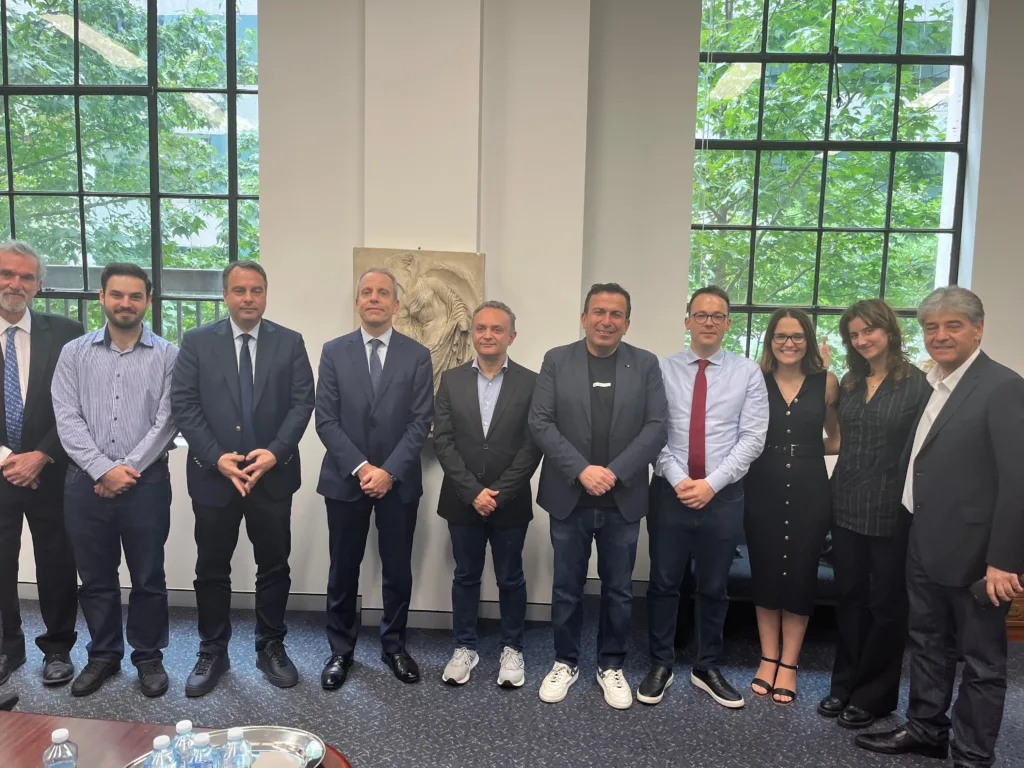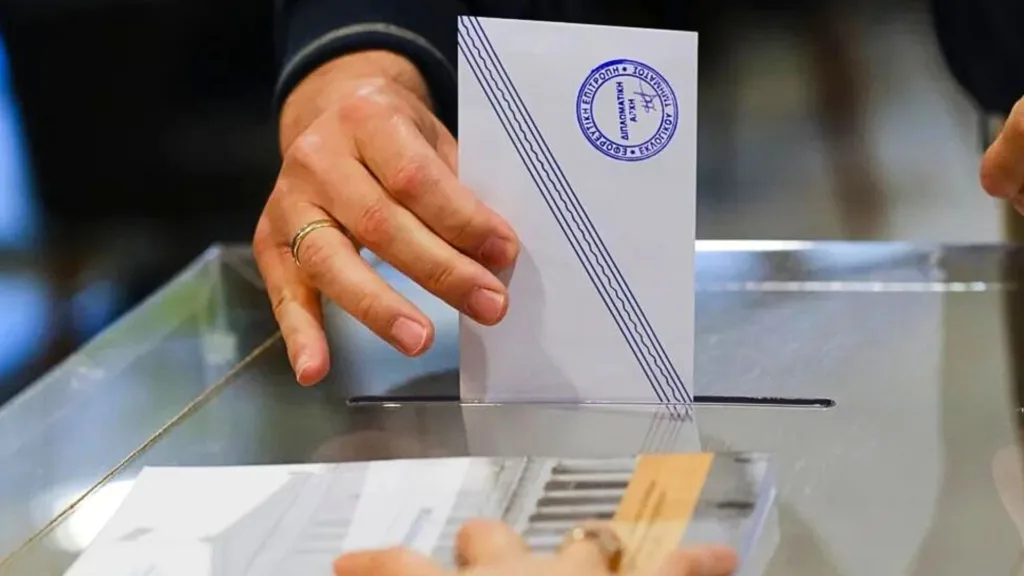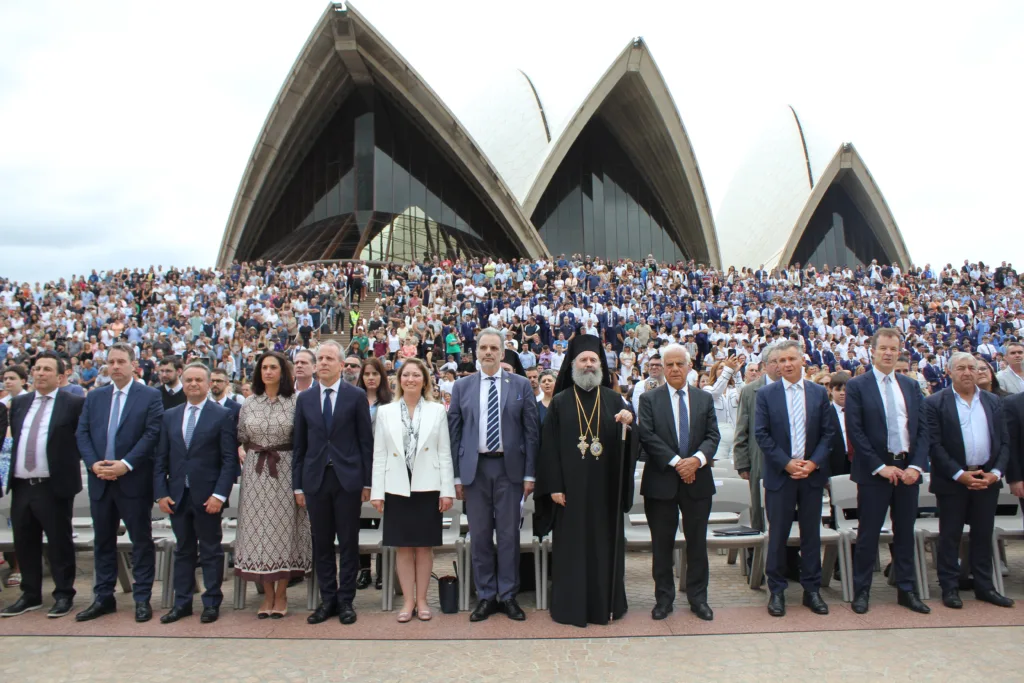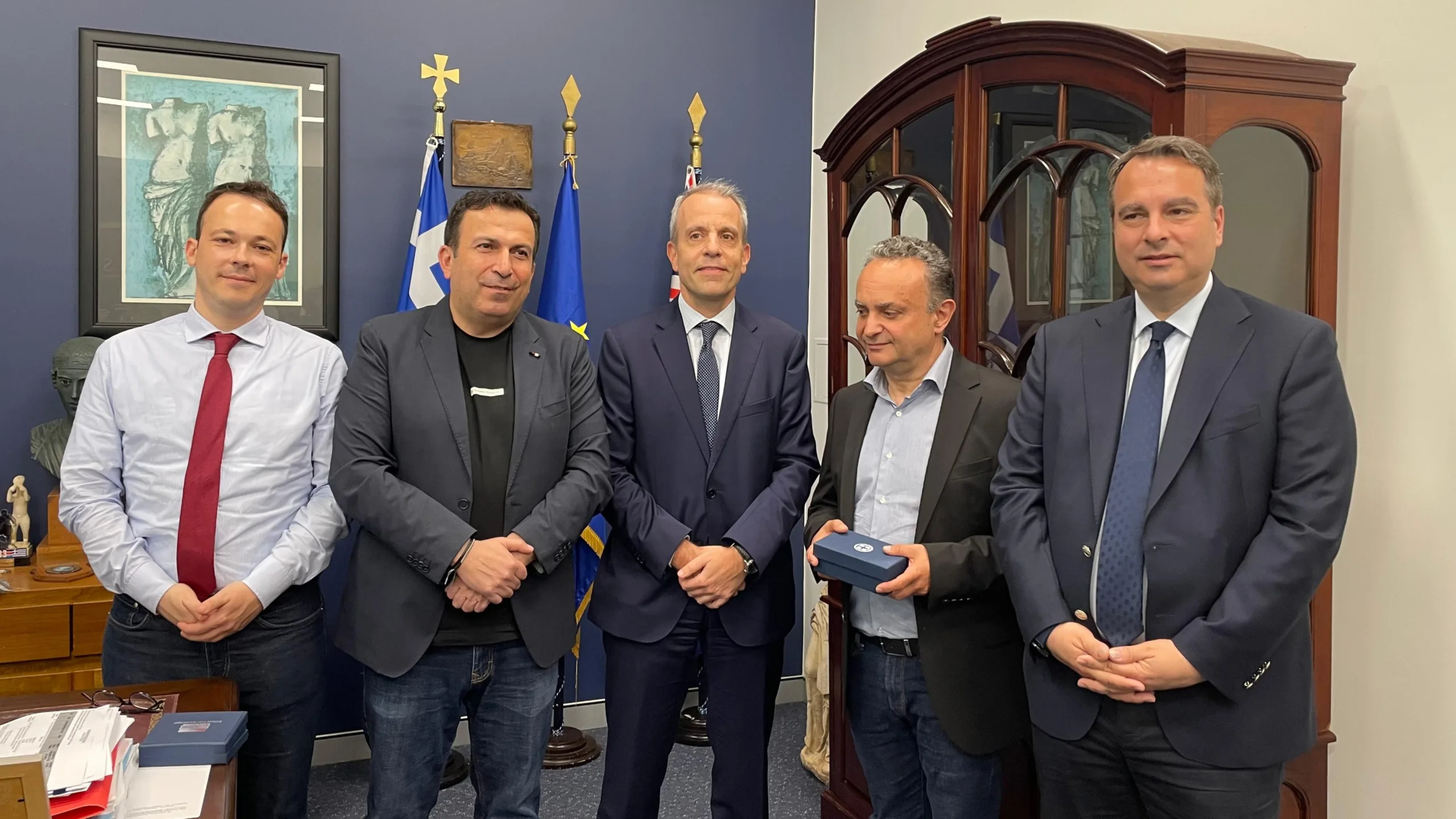By Ilias Karagiannis
A meeting with representatives of the Greek community media in Australia, including The Greek Herald, was held last week at the Consulate General of Greece in Sydney by four Greek MPs, as part of their recent visit to the city for Greek Independence Day celebrations.
The delegation from the Hellenic Parliament consisted of Stavros Keletsis (New Democracy), Athanasios Papathanasis (New Democracy), Stefanos Parastatidis (PASOK), and Miltiadis Zamparas (SYRIZA), who remained in Sydney for a week, making contact with community organisations.
At the centre of the discussion were the issues of insufficient information regarding the land registry deadlines, which caused significant anxiety among many Greeks in Australia, and the issue of postal voting for expatriates in national elections.

Greece’s land registry:
On the matter of the land registry, The Greek Herald raised the need for better communication from the government towards community media, in the context of the goal to strengthen them, as is clearly outlined in the Strategic Plan for the Greek Diaspora of the Ministry of Foreign Affairs.
The two representatives of the ruling party, New Democracy, mentioned that there were problems even in Greece with the land registry deadlines, but it is a landmark project that will be completed in 2025.
Mr Keletsis specifically stated: “Certainly, cooperation between the Greek State and the community media is necessary and must be significantly improved. We will inform the press office about this lack of information regarding the Land Registry so that we can see how better organisation and communication with you can be achieved.”
Mr Papathanasis, for his part, emphasised that: “We need to look, along with the General Secretariat for Communication, at how communication with the community media can be improved, for better organisation and more effective information dissemination to the expatriates.”
Postal voting in national elections:
There was an extensive discussion on the government’s intention to reintroduce the relevant bill for postal voting in national elections, with Mr Keletsis noting that “the government’s will to extend postal voting to expatriates and in national elections is clearly expressed.”
He reminded that the amendment submitted by former Minister of the Interior, Niki Kerameus, did not gather the support of the other parties, adding that “the government will reintroduce it before the next national elections.”
From the side of PASOK, Mr Parastatidis recalled that his party secured the vote of expatriates in the Constitution, stressing, however, that “we did not vote for the specific bill because the government attempted, through an amendment, to change the electoral system.” He described the process as “problematic for democracy” and underlined the need “for a major, substantial discussion about changing the electoral system,” adding that the right to electronic voting should also be thoroughly examined.
Mr Zamparas from SYRIZA moved along the same lines, pointing out that “as a matter of principle we are in favour of postal voting for expatriates and in national elections. We did not proceed with it because the submission of an amendment by the government seemed like manipulation.” He added that “after my trip to Australia and the meetings we had, my opinion has been reinforced that we should reconsider this particular issue.”

Delays at Consular services in Australia:
Among the issues raised by the diaspora journalists was that of consular services, with the MPs acknowledging the shortcomings and delays. Mr Keletsis noted that “the problem lies mainly in Melbourne regarding the functioning of the consulates. It is a major issue.” He recognised the impact of the financial crisis and stressed that “we are in a phase of restructuring… We will convey these issues to the Greek Parliament and see how we can resolve them.”
Mr Papathanasis, for his part, mentioned that “an effort is being made to strengthen the consulates with staff who will sign fixed-term contracts,” characterising the initiative as “a move in the right direction.”
Greek language:
In the field of education, special emphasis was placed on the need to maintain Greek studies at universities abroad, especially in Australia. Mr Parastatidis praised the contribution of Professors Vrasidas Karalis and Anthony Dracopoulos at the University of Sydney, saying that “the State must intervene to ensure the effort they have made is protected.”
Mr Keletsis, for his part, highlighted the peculiarities of each country in matters of education, stating that “we must have a different recipe for each country. We must bridge the contradictions that exist in each educational system in America, Germany, Australia and adapt our plan accordingly.”
Personal reflections on Greek diaspora in Australia:
The MPs also shared their personal impressions from their contact with the community.

“A strong, vibrant community, one of the most vibrant in the world,” Mr Keletsis described it, speaking of “successful people who have been integrated in the best possible way into Australian society.”
Mr Papathanasis focused on the role of the community media and the “remarkable dynamism of the diaspora,” while emphasising that “a channel of continuous communication must be established… so that we can harness the dynamism of both sides.”
Mr Zamparas pointed out that “our homeland is not just a geographical space, but wherever Greeks live,” adding that “we are obliged to meet with our party leaders in the near future to prioritise the issues of the diaspora.” He placed emphasis on the Greek language and traditions, describing them as “the cornerstone” of preserving the identity of the Diaspora.
Mr Parastatidis mentioned that: “The visit to Australia was a tremendous experience,” and during the meeting, the PASOK MP smilingly referred to a sketch in his regular newsletter, which was showed to him by The Greek Herald‘s Digital Editor Andriana Simos and which shows him wearing a hat with the Australian flag.
“It’s an effort to attract younger readers and to lighten up some deeply ideological issues,” he commented with a laugh.
